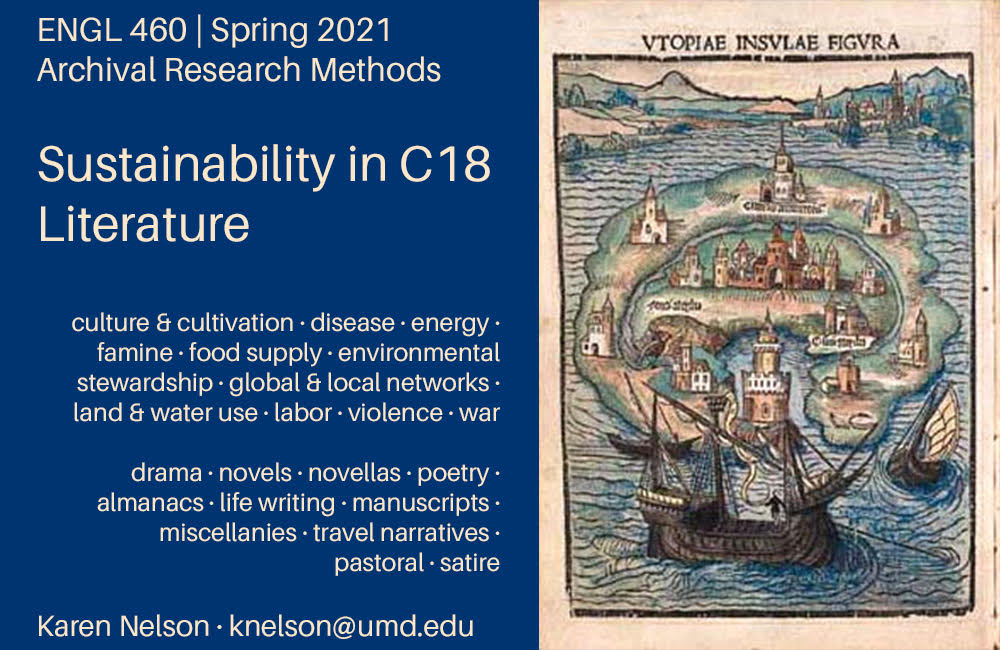ENGL460 Archival Research Methods in English Studies
Introduces approaches for doing archival research in English studies, exploring how researchers develop their scope and practices of study and how they access and use archival materials electronically and on site to further their research questions. Investigates a historical period, genre, or theme through the lens of manuscripts, ephemera, and other artifacts.
Introduces approaches for performing archival research in English studies; explores how researchers develop their scope and practices of study; investigates how to access and use archival materials electronically and on site to further research questions.
This section examines how authors of trans-Atlantic literature in English in the long eighteenth century critique, represent, or engage with issues of sustainability. Popular literary genres such as georgics, drama, poetics, and novels tell stories about land and water use, labor, food supply, famine, environmental stewardship. Life writing, manuscripts, newspapers, ephemera, and other artifacts provide context. These materials emerge via several archives, including Hornbake Special Collections, the Library of Congress, and the Enoch Pratt Free Library, and hands-on workshops engaging with book history and print practices.
Learning Outcomes:
Hone your skills in textual analysis, including archival details such as marginalia or draft variants
Learn how archival collections and research questions mutually shape one another
Become proficient in accessing and using archival materials
Increase your knowledge and understanding of 18th-century literature and culture
Expand your awareness of current and historic critical conversations in 18th-century studies
Develop authority as a scholar and critic
Methods: Hands-on. Explore virtual, campus, and area archives. Discover materials that relate to and are in conversation with the literature, letters, and life-writing we read together. Write and discuss to sharpen analysis. Share discoveries in class and online.


